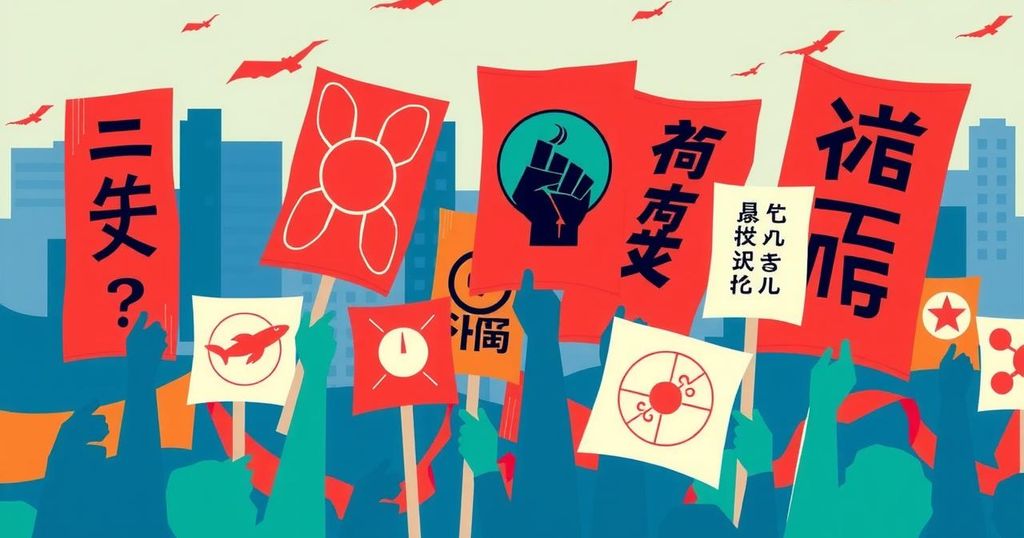Argentina’s CGT plans a 24-hour general strike against President Javier Milei before April 10, addressing police repression, economic issues, and other grievances. This follows violent clashes during protests, highlighting widespread discontent. The strike could occur amid ongoing challenges faced by workers and retirees in Argentina.
The General Labor Confederation (CGT) of Argentina is organizing a 24-hour general strike against President Javier Milei’s government, tentatively scheduled before April 10. Héctor Daer, a leader within the CGT, announced this decision during a meeting that included social movements and was part of the plenary session of Juan Grabois’ Union of Workers of the Popular Economy (UTEP). Daer emphasized that lower-income sectors are particularly impacted by current economic conditions.
The CGT board plans to meet on March 20 to finalize the strike details, addressing various grievances such as police violence against protesters, low wages, job cuts, and economic strategies perceived as harmful, such as wage suppression and heightened debt with the International Monetary Fund (IMF).
This announcement follows a tumultuous retirees’ protest outside the National Congress, where clashes led to over 120 arrests and approximately 50 injuries, resulting in significant backlash against the government’s handling of dissent. The UTEP gathering coincided with the first national “Pope Francis” Congress, celebrating the anniversary of Jorge Mario Bergoglio, the former Archbishop of Buenos Aires, becoming Pope.
If the strike occurs, it would be the third general strike against Milei’s administration, following prior strikes on January 24 and May 9 of the previous year. Broader issues such as pension rights, industrial decline, and the threat of deregulation are also important topics for the CGT and allied movements.
Daer criticized the current administration, claiming it diminishes wages and threatens the Argentine industry through layoffs and policies advocating further borrowing from the IMF. He argued that the government’s actions extend beyond recent police repression, challenging long-standing societal consensuses such as gender policies and definitions of femicide in the Penal Code.
Alejandro Gramajo, the UTEP Secretary-General, advocated for retirees’ rights and condemned the government’s repression. He characterized the current model as one of extreme hardship and stated, “This model of cruelty, hunger, and misery has an expiration date, and that date will be set by the working people.” Gramajo also highlighted the importance of Pope Francis’s agenda for social justice.
In summary, the CGT’s announced general strike draws attention to multiple grievances against the Argentine government under President Javier Milei, particularly in light of recent violent protests. Key concerns include economic hardships affecting fixed-income workers, police repression, and the detrimental impact of government policies on national industry and social progress. The upcoming actions reflect a collective call for justice and change from the labor movement and social organizations in Argentina.
Original Source: en.mercopress.com




